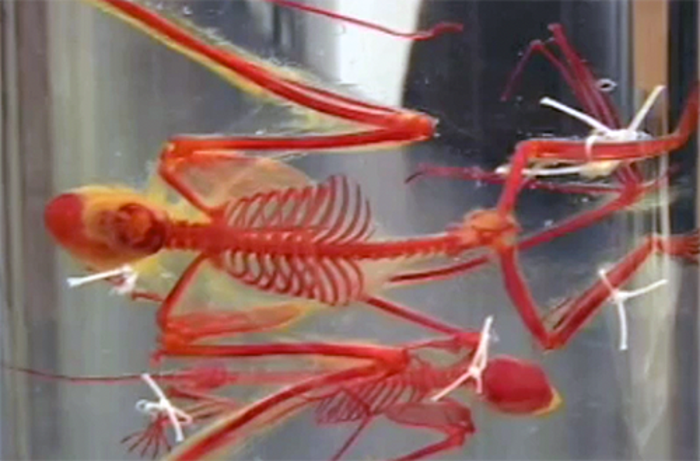Ithaca, NY—A new study from the Cornell University Museum of Vertebrates reveals that new additions of vertebrate specimens to natural history collections are declining precipitously. The authors suggest that it is vital to maintain collecting efforts in order to address future unforeseen ecological issues. The study is published in the journal PLoS Biology.

Credit: Cornell University Museum of Vertebrates.
Ithaca, NY—A new study from the Cornell University Museum of Vertebrates reveals that new additions of vertebrate specimens to natural history collections are declining precipitously. The authors suggest that it is vital to maintain collecting efforts in order to address future unforeseen ecological issues. The study is published in the journal PLoS Biology.
Data from over 245 institutions, available through the Global Biodiversity Information Facility (GBIF), show that the addition of new physical specimens has declined by 54% to 76% across 4 vertebrate groups from 1965 to 2018. For several vertebrate groups, collecting activity is lower than it was during World War II.
The authors believe the declines are alarming and that failing to add new specimens to natural history collections compromises the value of existing collections and will limit future discovery through a lack of appropriate comparative material.
Two conflicting philosophies make collecting specimens a difficult issue: preserving the life of an individual versus taking that life to gain knowledge that could benefit the entire species.
The authors conclude, “If the declines in collecting continue, the legacy we leave future generations will be an unfillable gap in the longest tangible record of life on earth, created precisely in the midst of widespread and dramatic environmental change. Is this a risk we are willing to take?”
Journal
PLoS Biology
DOI
10.1371/journal.pbio.3001613
Method of Research
Systematic review
Subject of Research
Animals
Article Title
Declining growth of natural history collections fails future generations
Article Publication Date
19-Apr-2022




